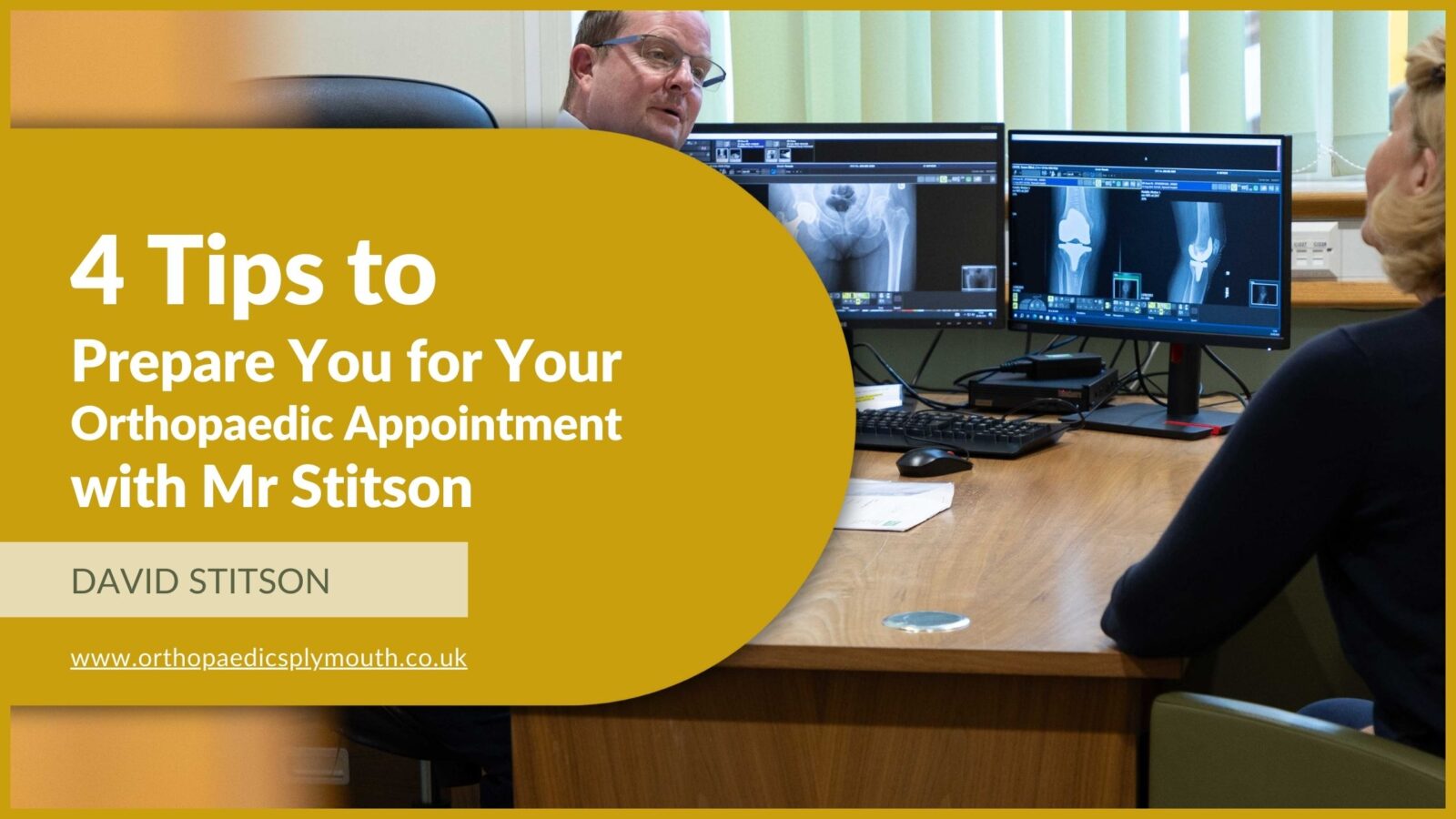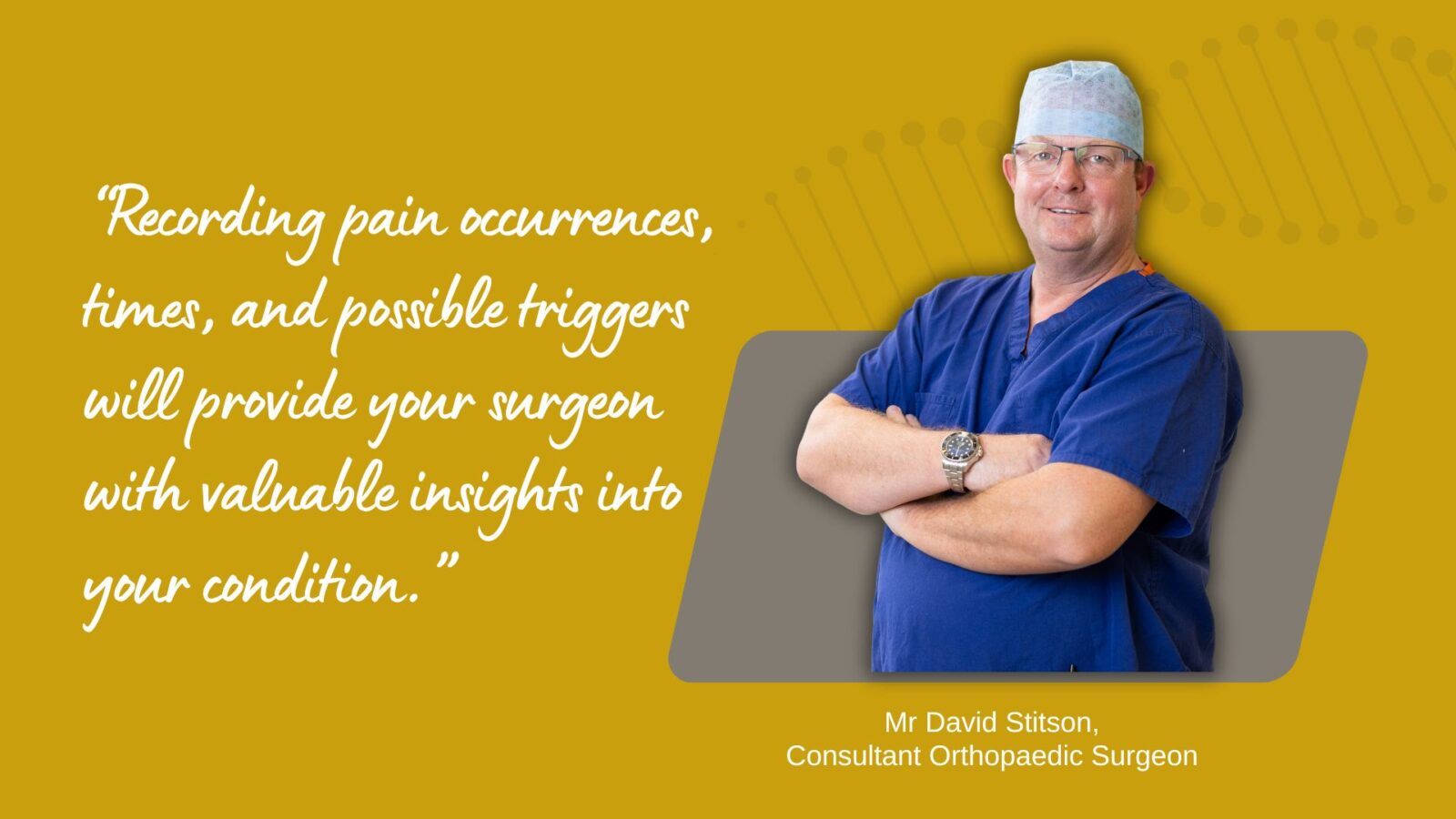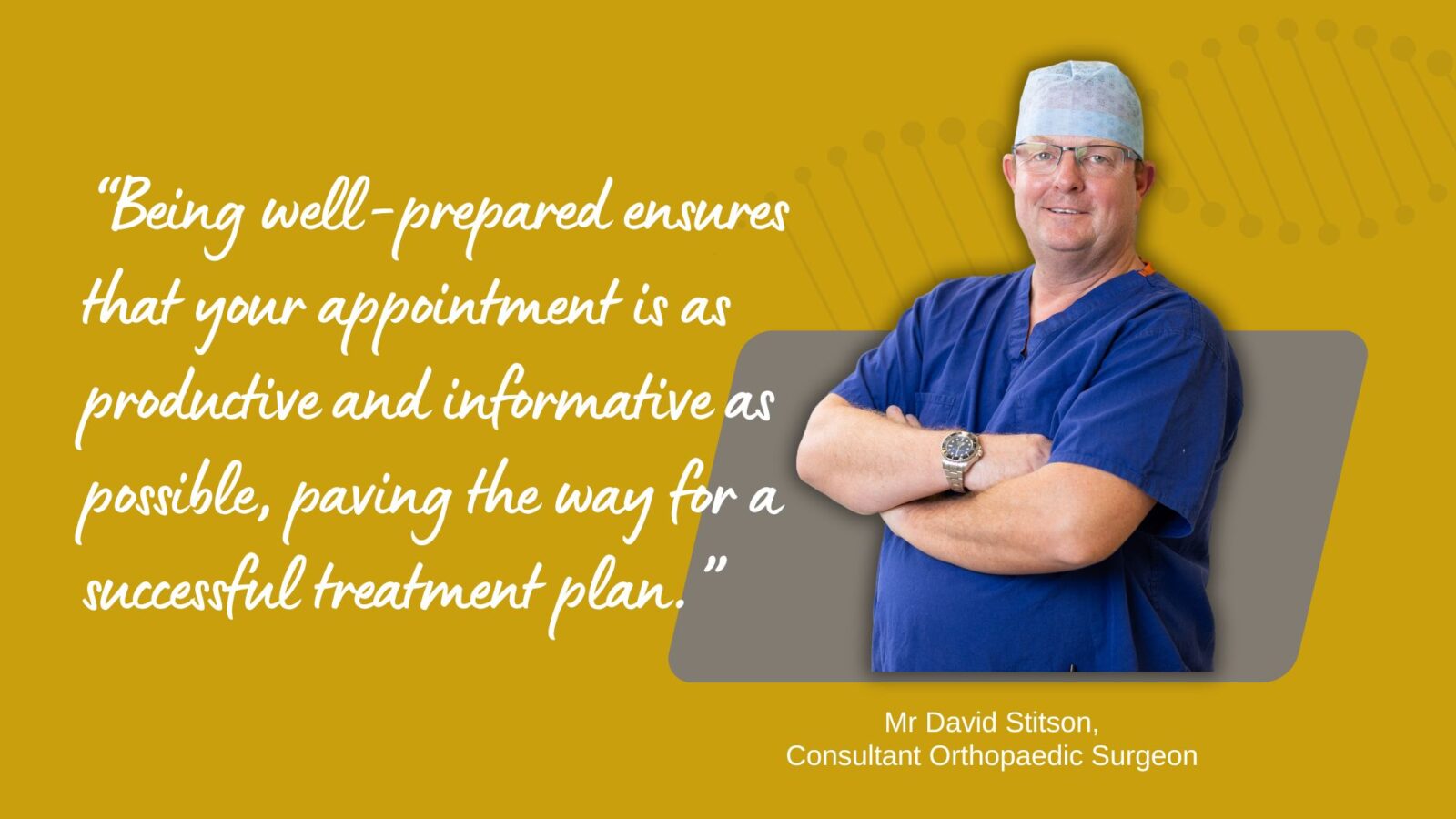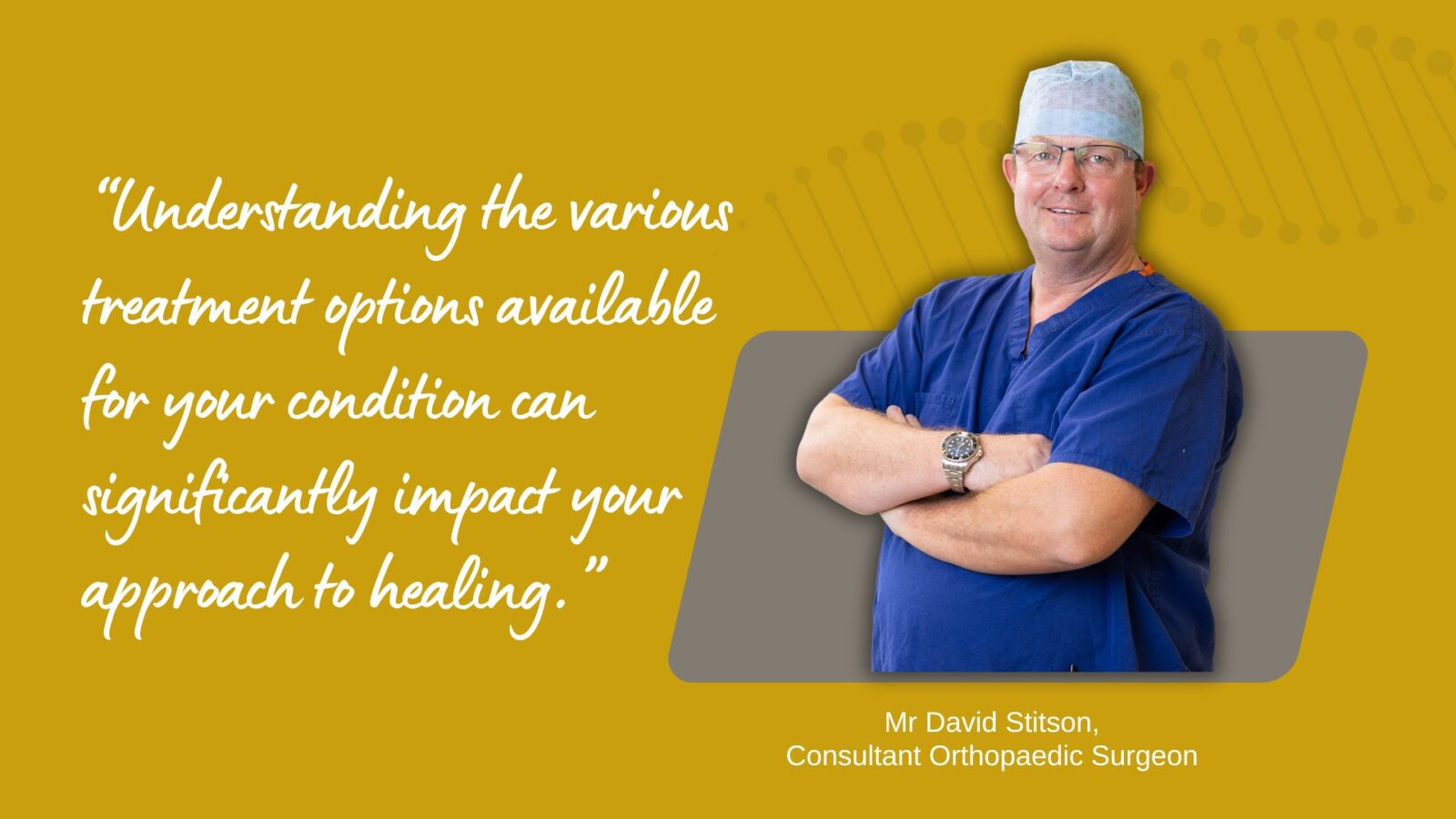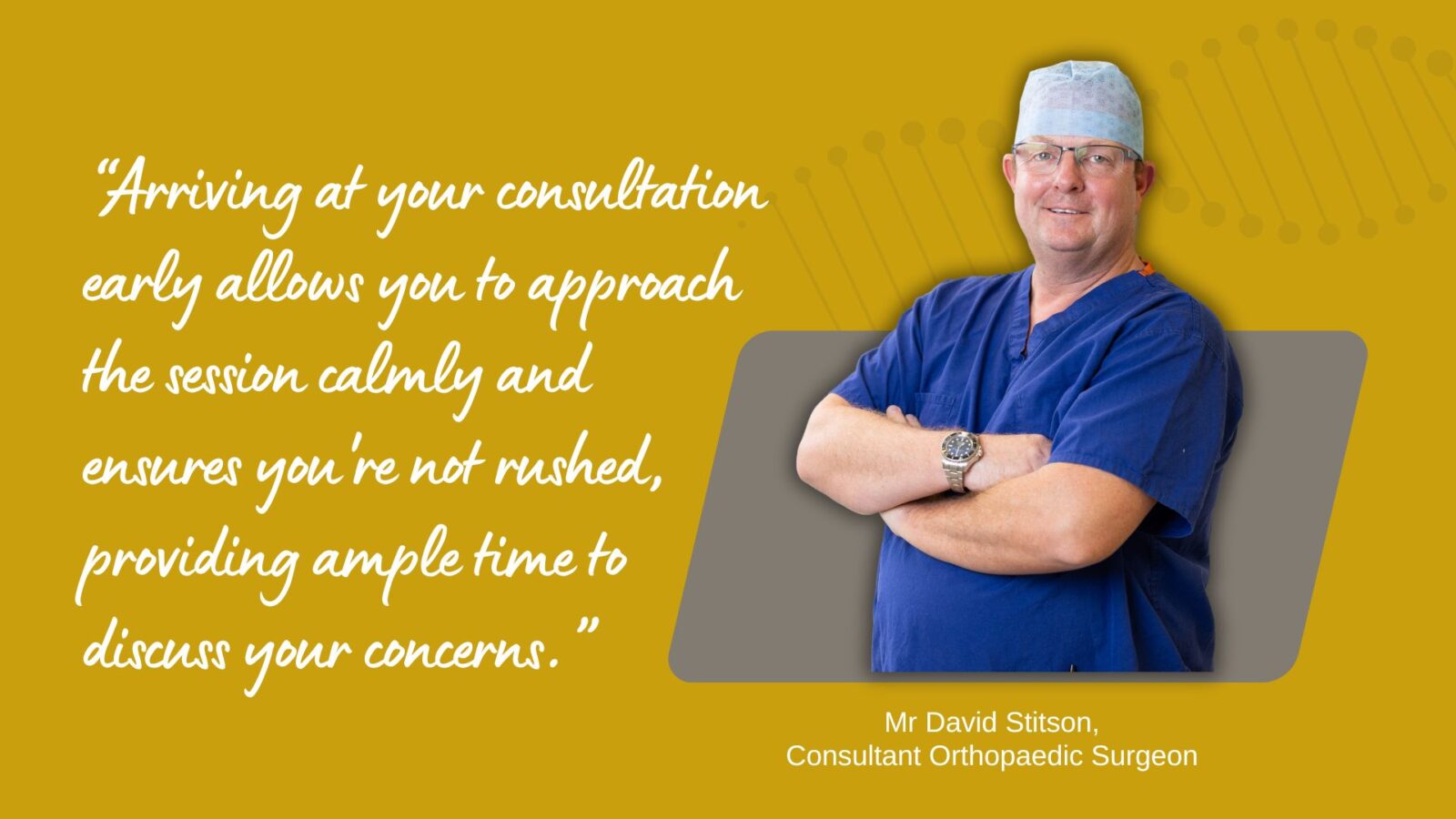Preparing for an appointment with an orthopaedic surgeon can feel daunting, especially if it is your first visit.
Understanding what to expect and how to prepare can help alleviate some of the stress and ensure a productive meeting. Whether you’re dealing with a chronic condition or evaluating treatment options for an injury, being well-prepared can make all the difference.
Contents
ToggleThis guide provides vital tips and insights to help you ready yourself, ensuring your concerns are clearly communicated and addressed.
1. Understanding Your Orthopaedic Condition
When preparing for a consultation with an orthopaedic surgeon, having a good grasp of your condition is crucial. This understanding will not only help you articulate your concerns more clearly but also enable you to engage actively in the treatment discussion.
Researching Your Condition
Start by researching your specific orthopaedic condition – are you suffering from Hip Pain or Knee Pain? While your surgeon will provide medical insights, having foundational knowledge can make your consultation more productive. Use reputable sources like NHS guides or medical websites to gather information about the typical causes, diagnostic methods, and treatment options associated with your condition. Understanding basic terminology and the anatomy involved can be particularly beneficial, as it allows you to follow along more easily during discussions.
Knowing the Symptoms and Triggers
Become familiar with the symptoms associated with your Hip Pain or Knee Pain and take note of any that you are experiencing. Being able to describe your symptoms accurately helps the surgeon assess your situation more effectively. Consider the following:
- The type of pain or discomfort (e.g., sharp, throbbing, or dull)
- The location and extent of the symptoms
- Frequency and duration of episodes
- What activities or movements seem to trigger these symptoms
- Any noticeable swelling, stiffness, or weakness
Keeping a symptom diary can be extremely useful, especially if your symptoms fluctuate. Recording occurrences, times, and possible triggers can provide your surgeon with valuable insights into your condition.
2. Gather Medical Information
To ensure a thorough evaluation, it is important to provide your orthopaedic surgeon with a comprehensive overview of your medical history and current health status.
Compiling Your Medical History
Compile a detailed medical history, as your surgeon will need to be aware of any past medical issues to recommend the best treatment approach. Include any past injuries, illnesses, or infections that might be relevant to your current condition. Note down any family history of orthopaedic problems, as genetic predispositions can also play a role. Ensure that this history is both accurate and concise to give your surgeon a complete picture without overwhelming them with unnecessary details.
Listing Current Medications
Keep an up-to-date list of all medications you are currently taking, including:
- Prescription drugs
- Over-the-counter medications
- Vitamins and supplements
- Herbal remedies
Include the name, dosage, and frequency of use for each item. This information is vital for the surgeon to cross-reference with their treatment plans and to avoid any potential drug interactions. If you are unsure about any medication details, consult your pharmacist beforehand.
Previous Treatments and Surgeries
Document any previous treatments or operations related to your current orthopaedic issue, as these can significantly influence Mr Stitson’s recommendations.
Include details such as:
- The type of treatment or surgery
- Dates and frequency
- The healthcare provider or facility that administered the treatment
- Outcomes and any complications or side effects experienced
Having this information readily available will save time during your appointment and help Mr Stitson design a treatment plan that takes your past experiences into account.
By being well-prepared in these areas, you can ensure that your appointment with an orthopaedic surgeon is as productive and informative as possible, paving the way for a successful treatment plan.
3. Prepare Questions for Mr Stitson
Preparing a list of questions for your orthopaedic surgeon is a crucial step to ensure you gather all necessary information regarding your condition and its management. This not only helps in understanding your treatment options better but also aids in making well-informed health decisions. Below are some categories of questions to consider:
Treatment Options and Alternatives
Understanding the various treatment options available for your condition can significantly impact your approach to healing. Start by asking Mr Stitson to explain all possible treatments in detail. You might want to inquire about:
- Surgical vs. Non-surgical Treatments: Ask whether your condition requires surgery or if there are effective non-surgical alternatives.
- Types of Surgery: In case surgery is necessary, learn about the different surgical methods available and why Mr Stitson recommends a particular one.
- Medications: Understand any medications that might be involved, including potential side effects.
By asking these questions, you ensure you are aware of all the paths you might take and can weigh the benefits against the drawbacks.
Potential Risks and Outcomes
No medical procedure is without risk and it is vital to be aware of these before proceeding. Questions in this area might include:
- Success Rates: What are the expected outcomes of the procedure, and how do they vary based on individual circumstances?
- Complications: What are the common risks associated with the recommended treatment?
- Long-term Effects: Are there any lasting consequences of the treatment that might affect your quality of life?
These queries will provide a comprehensive view of what to expect and can help in mitigating any anxiety regarding the procedure.
Recovery and Rehabilitation Expectations
Recovery is an essential aspect of your treatment and knowing what to expect can ease the transition back to your usual activities. Consider asking:
- Recovery Time: How long is the anticipated recovery period and what factors might influence this timeline?
- Rehabilitation: What kind of physical therapy or rehabilitation will be required and how often should it be performed?
- Limitations During Recovery: What activities should be avoided and when can you expect to resume them?
Understanding the recovery process helps in planning your post-treatment life and ensures you have a support system in place during this period.
It is essential to discuss all your options with Mr Stitson, who can guide you through the treatment process and advise on how you can achieve the best possible outcome.
4. Making the Most of Your Appointment
Making the most out of your appointment involves being proactive and organised. Besides preparing questions, it is beneficial to:
- Bring Comprehensive Medical Records: Provide the surgeon with your medical history, including previous treatments and images like X-rays or MRIs, if applicable.
- Take Notes: Write down essential points during the discussion to refer back to them later.
- Bring a Companion: Having a friend or family member present can help you with remembering details and to provide emotional support.
- Clarify Doubts: Do not hesitate to ask for clarification on any point you do not understand; this is critical for making informed decisions.
Moreover, arriving at your appointment early allows you to approach the session calmly and ensures you’re not rushed, providing ample time to discuss your concerns. By taking these steps, you not only demonstrate active participation but also lay a solid groundwork for a fruitful consultation with your orthopaedic surgeon.
Preparing for your appointment with an orthopaedic surgeon is crucial to ensure a productive and efficient visit. By gathering all relevant medical records, jotting down your symptoms and questions and familiarising yourself with your health insurance details, you can make the most of your time with the specialist.
About Hip Surgery
Hip replacement surgery replaces the worn-out, painful and stiff hip joint with a new prosthetic joint. This procedure is normally performed under spinal anaesthesia and is commonly followed by a night or two in the hospital. Day-case hip replacement surgery may be an appropriate option for you.
About Knee Surgery
Knee replacement surgery replaces the worn out, painful and stiff knee joint with a new prosthetic joint. This procedure which may be a partial or a total replacement is normally performed under spinal anaesthesia and is usually followed by a night or two in the hospital. Day-case knee replacement surgery may be an appropriate option for you.

About Mr Stitson
David Stitson is a Plymouth-based Consultant Trauma and Orthopaedic Surgeon. Trained both in the UK and internationally, he has worked in medicine for more than 20 years for the NHS, for the Royal Air Force and in private practice. Mr Stitson operates privately at the Nuffield Health Hospital, Plymouth.

The Nuffield Plymouth CQC Rating
The Nuffield Hospital has a history that spans over half a century and has built a reputation for high standards of care, professionalism and expertise in delivering health services. They aim for continuous quality improvement in everything they do.
Active Quality and Governance programmes are in place at the Nuffield Hospital Plymouth. As part of this, the hospital is inspected by independent healthcare regulators to ensure it meets the fundamental standards of quality and safety as determined by the regulating body (CQC).
In the most recent inspection, Plymouth Nuffield Hospital was rated as ‘Good’ overall, however, the surgical element of the inspection was rated as ‘Outstanding’. The hospital was referred to as:
“Outstanding in effective and caring, and
Good in safe, responsive and well-led.”

